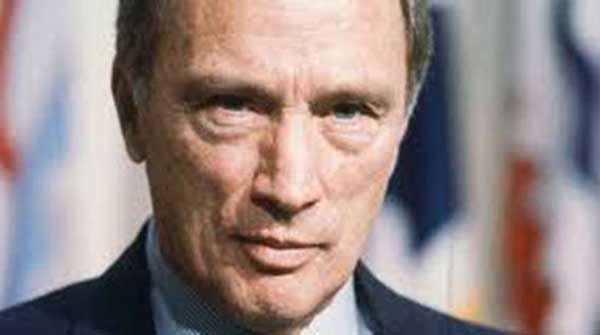 It was an iconic and defining moment in Pierre Trudeau’s political career.
It was an iconic and defining moment in Pierre Trudeau’s political career.
Confronted by CBC reporter Tim Ralfe about the presence of soldiers on Ottawa’s streets in the autumn of 1970, Trudeau gave no quarter.
Ralfe’s questioning about the prime minister’s decision to deploy the military was persistent and pointed: “How far would you go with that? How far would you extend that?”
Trudeau didn’t mince words: “Well, just watch me.”
The roots of the crisis dated back to 1963, the year that a Marxist revolutionary group styling itself the Front de liberation du Quebec (FLQ) launched a campaign of bombing and armed robbery. Over the next seven years, six people were killed and more than 40 injured. And when various members were arrested and convicted for these actions, the FLQ declared them “political prisoners.”
Then on Oct. 5, 1970, British trade commissioner James Cross was kidnapped in Montreal. Faced with an FLQ demand for $500,000 ransom, release of 23 “political prisoners,” safe passage to either Cuba or Algeria and the broadcast of the group’s manifesto, the federal government played for time by agreeing to the latter. In addition to calling for Marxist revolution, the FLQ’s Oct. 7 and Oct. 8 broadcasts included a slur on Trudeau’s alleged sexual orientation.
A second kidnapping dramatically raised the ante on Oct. 10. This time, the victim was a Quebec provincial cabinet minister Pierre Laporte.
In response, on Oct. 12, Trudeau dispatched soldiers to Ottawa to protect politicians and federal buildings. The televised encounter with Ralfe happened the following day.
Those who remember that week will recall the surrealism that set in. In some quarters, it even included mutterings about of the kind of extra-parliamentary coups common in Latin America at the time.
And this was happening in Canada, the home of peace, order and good government!
There were bomb threats and pro-FLQ demonstrations, and more than 1,000 university students in Montreal signed the FLQ manifesto. There was talk of the need for a provisional provincial government in the event that Premier Robert Bourassa’s administration collapsed. And a group of 16 prominent citizens – including politicians, labour leaders and intellectuals – signed a petition calling for negotiations with the FLQ and “an exchange of the two hostages for the political prisoners.”
For Trudeau, enough was enough.
In the early hours of Oct. 16, he invoked the War Measures Act (WMA), an antiquated piece of legislation first passed in 1914 that gave the federal government emergency powers.
The following day, Laporte’s body was found in the trunk of an abandoned car.
The one-two punch of the draconian WMA and the horror at Laporte’s murder essentially knocked the stuffing out of any burgeoning FLQ support.
When the police eventually discovered where Cross was being held, a deal was struck. On Dec. 4, he was freed and his kidnappers were flown to Cuba.
Laporte’s abductors surrendered on Dec. 28.
Although Canadians overwhelmingly approved of Trudeau’s actions, there was a backlash in some circles. And it grew over the years.
In part, this backlash was a response to the WMA’s temporary suspension of civil rights and the broad scope of the related arrests. Very few of those detained were ever charged.
And in hindsight, the perceived threat of armed insurrection seems to have been severely overstated. Rather than having the suggested several thousand members, the FLQ’s numbers may have been as few as 35.
So one criticism is that Trudeau’s action was grossly disproportionate, even panic-stricken. NDP Leader Tommy Douglas described it as “using a sledgehammer to crack a peanut.”
Another criticism is more sinister. Trudeau’s objective, the theory goes, was not just to thwart terrorism but to smash Quebec separatism, a movement of which the FLQ was the violent wing. Citing Trudeau’s “authoritarian mind,” author and historian Bob Plamondon puts it this way: “The WMA was as much a political statement as it was a tool to restore law and order and free the hostages.”
I, however, am happy to cut Trudeau significant slack.
Yes, people often have multiple motivations and there’s no doubting his authoritarian streak.
But the crisis was real, the situation was volatile and some were disposed to view the FLQ as agents of the zeitgeist. Thrashing that toxic notion was a good idea – and an iconic moment in Trudeau’s career.
Pat Murphy casts a history buff’s eye at the goings-on in our world. Never cynical – well perhaps a little bit.
The views, opinions and positions expressed by columnists and contributors are the author’s alone. They do not inherently or expressly reflect the views, opinions and/or positions of our publication.


